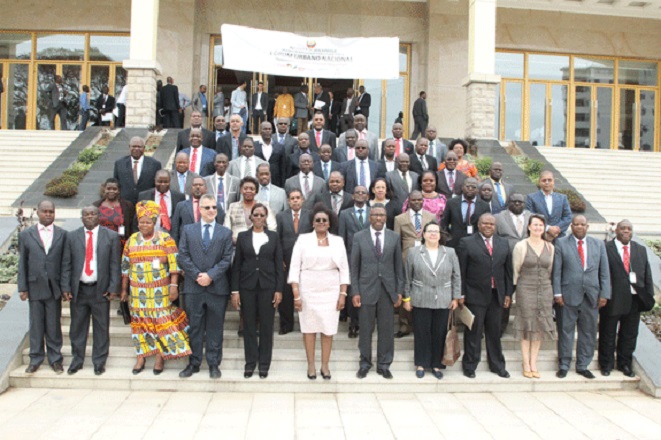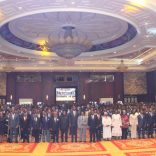Mozambique: President announces suspension of tolls on three roads in Gaza - Watch
Migration from countryside hinders urban management – Minister Namashulua @ 1st National Urban Forum, Mozambique

Noticias
The migratory flow of people from the countryside to the cities is hindering urban management in Mozambique, warned the Minister of State Administration, Carmelita Namashalua, on Wednesday.
Speaking at the opening in Maputo of the First National Urban Forum, attended by mayors of Mozambican municipalities, as well as representatives of private business and civil society, Namashalua said that urbanization had speeded up as a result of the war that raged in Mozambique throughout the 1980s and early 1990s.
In a short space of time, the urban population grew by 26 per cent, and the urban administration proved unable to cope with this challenge. “This situation caused a rapid increase in informal settlements, greater pressure on basic services, such as health, water and sanitation, and education, and phenomena such as unemployment and crime emerged”.
In addition, Mozambique is highly vulnerable to natural disasters, Namashalua said. Disasters (such as floods and cyclones) are responsible for the loss of around two per cent of gross national product per year.
The Minister stressed that municipalities need to improve their infrastructures, in order to reduce the likely damage from disasters, particularly in the light of climate change, which will increase still further the country’s vulnerability.
“Urban resilience must be seen as a question that goes beyond controlling the risk of natural disasters”, she said. “We need to think of it as a question of the sustainability of our cities and of all the social, economic and political systems that exist within them. We must promote urban growth that does not involve environmental damage”.
Namashalua recognized that the municipalities are seriously short of money. Their weak capacity to raise their own taxes means that they depend overwhelmingly on funds from the central government. She said that 77 per cent of the municipalities’ running costs depends on transfers from the government.
Tagir Carimo, the Mayor of Pemba, and the chairperson of the Association of Municipalities, also pointed to the pressures caused by rapid urban population growth.
“About 32 per cent of the Mozambican population lives in the urban areas, with an annual growth rate of 3.3 per cent”, he said. “This pressure on the cities dictates the need to rethink the organization of urban spaces as a whole”.
The governor of Maputo City, Iolanda Cintura, struck an optimistic note, claiming that “with the implementation of the municipalities we have managed to orient our institutions towards the active organization of citizens in solving the typical problems of our cities, promoting local development and improving the provision of services in the framework of consolidating peace, national unity and the fight against urban poverty”.
She said that the National Urban Forum is a unique space for consultation and reflection about urbanization in Mozambique, which should culminate in the effective implementation of municipal and urban development policies.












Leave a Reply
Be the First to Comment!
You must be logged in to post a comment.
You must be logged in to post a comment.